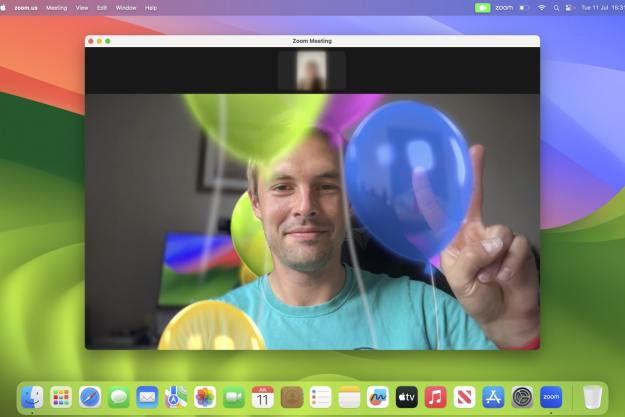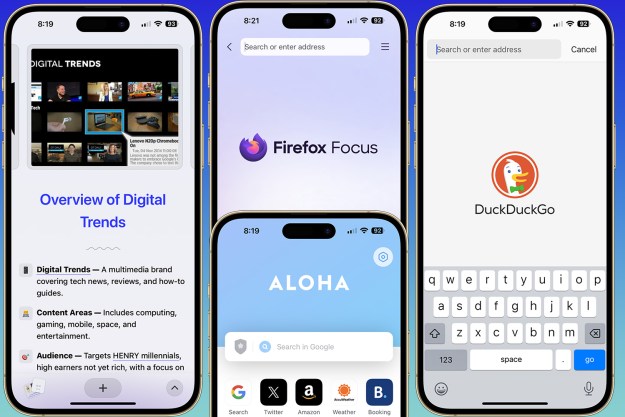
We found that the vast majority of apps in the top 100 free apps on the App Store are safe.
We searched through the most commonly downloaded apps in the App Store, and found that very few of the most popular free and paid apps are still affected by the bug. Regardless, it’s best to check if your apps are vulnerable and to learn how to protect yourself.
Here’s everything you need to know.
Here’s how hackers exploit the flaw
According to the security firm, around two million people have installed apps that suffer from the HTTPS-crippling vulnerability. The apps include Citrix OpenVoice Audio Conferencing, Alibaba’s mobile app, Movies by Flixster with Rotten Tomatoes, KYBankAgent 3.0, and Revo Restaurant Point of Sale, among others. The researchers are trying to keep the full list of apps under wraps so as to avoid opening iOS users up to more hackers who would use the vulnerability for nefarious purposes. However, on its website, SourceDNA offers a tool to developers so they can check if their apps are safe.
The researchers found that the vulnerability comes from a problem in an older version of an open-source code library called AFNetworking, which allows developers to add networking capabilities to their apps. AFNetworking fixed the issue about three weeks ago, and many developers have already updated their iOS apps to close the hole, but at least 1,500 iOS apps are still vulnerable. Among the companies that have already fixed the flaw are Yahoo, Uber, and Microsoft.
Do your iOS apps have the AFNetworking SSL validation flaw, exposing your users’ info? Find out here! http://t.co/Y4cwr9vwXb
— SourceDNA (@SourceDNA) April 20, 2015
SourceDNA explained in a blog post that any app that’s still using the older version of the AFNetworking code is vulnerable to man-in-the-middle attacks that allow hackers to decrypt HTTPS-encrypted data. Here’s how it works: Hackers who want to exploit the flaw simply hop onto a coffee shop Wi-Fi network to monitor the targeted device. The hackers then send the device a fraudulent secure sockets layer certificate. Typically, the device would realize that the certificate is a fake, and the device would drop the connection immediately. However, devices with apps that run the older version of the AFNetworking code have a logic error that allows the fake certificate to pass without a security check.
The reason why the check is never carried out by these apps is that the AFNetwork version 2.5.1 doesn’t offer certificate pinning, which ensures that apps use a specific certificate for HTTPS authentication and encryption. The absence of this extra security check leaves the affected apps completely open to hackers. Now that SourceDNA has publicly revealed the vulnerability, app developers will most likely move to fix the flaw, but it could take time.
Here’s how to protect yourself

If you’re concerned that your iPhone or iPad might house affected apps, you can check your apps using SourceDNA’s tool. You should also update all of your apps in case affected developers have already issued an update to patch the hole. You can update your apps by going to the App Store app and going to the updates tab in the bottom right-hand corner.
We used SourceDNA’s tool to search for a handful of popular apps on the App Store to see which ones are affected by the bug. We found that the vast majority of apps in the top 100 free apps on the App Store are safe. We also checked a handful of top paid apps and found very few affected.
Here’s a full list of the commonly-used apps:
- Google – No vulnerable apps
- Yahoo – Yahoo Finance version 2.3.2
- Microsoft – OneDrive version 5.1
- Facebook – No vulnerable apps
- Snapchat – No vulnerable apps
- Instagram – No vulnerable apps
- Pandora – No vulnerable apps
- Netflix – No vulnerable apps
- WhatsApp – No vulnerable apps
- Pinterest – No vulnerable apps
- Twitter – No vulnerable apps
- Spotify – No vulnerable apps
- Skype – No vulnerable apps
- Amazon – No vulnerable apps
- Uber – Uber version 2.64
- The Weather Channel – No vulnerable apps
- Vine – No vulnerable apps
- SoundCloud – SoundCloud version 3.8.1
- eBay – No vulnerable apps
- Waze – No vulnerable apps
- Beats Music – No vulnerable apps
- Viber – No vulnerable apps
- Shazam – No vulnerable apps
- Yelp – No vulnerable apps
- Fitbit – No vulnerable apps
- Tinder – No vulnerable apps
- Dropbox – No vulnerable apps
- Tumblr – No vulnerable apps
- Slack – No vulnerable apps
- Afterlight – No vulnerable apps
- Minecraft – No vulnerable apps
- Ustwo – No vulnerable apps
- Dark Sky – No vulnerable apps
As you can see, the number of affected apps that are popular is actually very small, and that number continues to shrink as companies perform updating. While 1,500 apps sounds like a huge number, given the millions of apps in the App Store, the reality is much smaller than you might think. Nonetheless, it’s better safe than sorry, so check out your apps here.
Editors' Recommendations
- Here’s how Apple could change your iPhone forever
- When will Apple release iOS 18? Here’s what we know
- The 7 biggest features we expect to see in iOS 18
- iOS 18 could add a customization feature I’ve waited years for
- I found 16 new widgets for iOS 17 that you have to try


